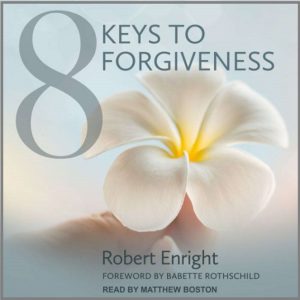Why Forgive?
A Forgotten History of Polish People’s Forgiveness After Auschwitz
This is a guest blog post from Edward Reid, who runs the “Polish History” site on Facebook. The essay, copied in full here with Mr. Reid’s permission, shows the forgiving nature of the Polish people after Rudolf Höss brutalized so many in Auschwitz.
Facebook page – April 16, 2025
The essay is as follows:

Image by Karolina Grabowska, Pexels.com
In 1947, Rudolf Höss, commandant of German KL Auschwitz in the years 1940-1943, was sentenced to death by the Supreme National Tribunal in Poland. Two weeks later, on 16 April, he was hanged next to the crematorium of the former concentration camp.
Rudolf Höss did not fear death. What he feared was torture, which he believed was inevitable at the hands of his Polish captors. After all, Auschwitz had been located in German-occupied Poland, and it was the Polish people who had suffered so terribly under his command.
What he encountered instead left him stunned.
He was not met with hatred or violence, but with decency and restraint. “I have to confess that I never would have expected to be treated so decently and so kindly in a Polish prison,” he later wrote. That unexpected mercy opened something within him. Several of the Polish guards, themselves former prisoners of Auschwitz, quietly showed him the tattoos burned into their arms. Rather than seek revenge, they treated him with dignity.
It was an act that brought him shame. If those he had helped torment could offer him humanity, then perhaps, he began to wonder, God might offer him mercy as well. Apathy gave way to guilt. Recognition replaced denial. He began to grasp the weight of what he had done.
For the first time, his soul responded to a flicker of love. The ideology he had once followed so blindly had taught him that Poles were inferior, little more than cattle. But now, through their compassion, he saw clearly the humanity of those he had dehumanized. And in that realization, he began to understand the true gravity of his crimes.“In the solitude of my prison cell, I have come to the bitter recognition that I have sinned gravely against humanity,” he wrote. “I caused unspeakable suffering for the Polish people in particular. I am to pay for this with my life. May the Lord God forgive one day what I have done. I ask the Polish people for forgiveness.”
By all accounts, his repentance appeared genuine. On April 4, 1947, which was Good Friday that year, Höss asked to make a confession. The prison guards struggled to find a priest who spoke fluent German. That is when Höss remembered Father Władysław Lohn, a Jesuit he had once saved from execution. The guards located him in Łagiewniki, Poland, where he was then serving as chaplain at the Shrine of Divine Mercy. Father Lohn heard his confession on the Thursday of Easter week. The next day, he gave him Holy Communion and Viaticum.
Witnesses said that as Höss knelt in his prison cell, he appeared like a small boy.
The man who had once been trained to suppress all weakness now wept openly.
Five days later, on April 16, 1947, as the noose was placed around his neck at Auschwitz, Father Tadeusz Zaremba stood beside him and recited the prayers for the dying.
Whether or not he deserved forgiveness is something each person must decide for themselves. But the crimes committed against the Polish people must never be forgotten.
And neither should the quiet strength of those who, even in the face of unimaginable suffering, chose mercy. This is also why the Polish people, despite their profound heroism and the scale of their suffering were left behind in the telling of history. They did not turn their pain into politics or profit. They did not build monuments to themselves and demand all the world bow to their wounds. They endured in silence behind the Iron Curtain. Many showed mercy when they had every right to hate. And in doing so, they were forgotten by a world that rewards those who shout the loudest, not those who suffer with dignity.
But the truth remains. It was not only the victims who showed humanity – it was the forgotten Polish guards, the priests, the villagers, the mothers, the resistance fighters. They gave the world a quiet, sacred kind of courage.
The kind that history has yet to fully honor…
The Role of Emotional Validation in Apologies and Forgiveness
This blog post is by Dr. Suzanne Freedman, a Contributing Writer and Researcher to the IFI. She is a Professor in the Educational Psychology department at the University of Northern Iowa in Cedar Falls, Iowa.
 I did something to hurt my daughter the other day. It was unintentional, but she was angry and hurt, and she had a right to her feelings. When she shared her emotions with me, I realized that my actions were wrong. I felt bad about what I had done; I apologized and assured her that it would not happen again. However, I apologized immediately after she expressed her anger, while she was still upset. Fortunately, through my study of forgiveness and the psychological process of forgiving for over 30 years, I understand that forgiveness is not instantaneous.
I did something to hurt my daughter the other day. It was unintentional, but she was angry and hurt, and she had a right to her feelings. When she shared her emotions with me, I realized that my actions were wrong. I felt bad about what I had done; I apologized and assured her that it would not happen again. However, I apologized immediately after she expressed her anger, while she was still upset. Fortunately, through my study of forgiveness and the psychological process of forgiving for over 30 years, I understand that forgiveness is not instantaneous.
Although I wanted my daughter’s forgiveness, I knew expecting it right away was neither fair nor realistic. People often apologize and expect immediate absolution before the injured has processed their emotions. Many individuals who say, “I forgive you” upon receiving an apology later discover they do not feel that forgiveness in their hearts. This is because genuine healing requires time, not just words.
One of the most overlooked aspects of apologizing is allowing the hurt people time to work through their emotions. Expecting immediate forgiveness disregards the necessary emotional processing that follows a deep, personal, and unfair injury (Smedes, 1996). Emotional reactions to conflict and personal injury are normal and natural, and those who have been hurt need time to feel and express their emotions. As a student in my college class on interpersonal relationships stated, “Forgiveness is not immediate—you cannot just say ‘I forgive you’ and expect everything to be better. Especially if saying it is not true—saying it just to stop talking about it does not make it better for you or them. Yet, I see it all the time, and people wonder why their relationships/friendships are never the same. There are steps you can take to forgive someone, even if you never forget what happened or your relationship isn’t the same” (personal communication, March 2025).
A sincere apology involves emotional validation—the acknowledgment of another person’s feelings as real and important. Research shows that interpersonal hurt often evokes a mix of emotions, including resentment, anger, and/or sadness (Freedman & Zarifikar, 2016). If these emotions are dismissed—such as when an offender urges the injured to “move on” or “let it go”—it can lead to emotional suppression or denial rather than genuine healing (Gregory, 2025). Admitting and expressing feelings is a critical step before forgiveness can occur, as emphasized in the first phase of Enright’s (2019) process model of interpersonal forgiveness. Forgiveness is often criticized because individuals fail to recognize this critical step in the forgiveness process and mistakenly believe that forgiveness involves the suppression or denial of one’s emotions (Freedman & Zarifkar, 2016).
I knew that allowing my daughter to feel, express, and process her emotions was just as important as my apology. By validating her anger rather than dismissing it or pushing her toward forgiveness, I communicated that her pain mattered. This act of validation fosters an environment where forgiveness can develop naturally over time. Parents often struggle when they see their children in pain and may react by suggesting they quickly move past the hurt. However, individuals need time to experience and process their emotions before they are ready to move forward. According to Damour (2020), when teens can sit with their feelings and then move beyond them, they develop resilience, realizing they can endure difficult emotions.
Pressuring someone to forgive before they are ready can lead to resentment, emotional dissonance, and distrust in the forgiveness process (Worthington, 2006). Instead of fostering healing, forced forgiveness creates obligation, often resulting in superficial reconciliation (Freedman & Chang, 2010). My college students frequently report that they remember being told in childhood to forgive after receiving a forced apology, despite still feeling hurt. Similarly, offenders are often encouraged to apologize before they truly feel remorse. Genuine forgiveness and apology cannot be demanded—it must arise from within.
In my situation, if I had expected my daughter to forgive me immediately, she might have felt pressured rather than supported. This could have led to resentment or suppression of her emotions instead of real healing. By giving her the space she needed, I conveyed that her emotions were valid. As Damour (2020) explains, psychological health is not about avoiding discomfort but about experiencing the appropriate emotion at the right time and developing the capacity to endure it.
Conclusion
Forgiveness is a process, not a transaction. While an apology is a critical step in making amends, it does not guarantee immediate and automatic forgiveness. Emotional validation plays an essential role in healing by acknowledging the injured person’s emotions rather than rushing the person toward a resolution. Additionally, while an apology is not necessary for forgiveness to occur, it is often important for reconciliation and can make forgiving easier. However, requiring an apology before forgiving can leave the injured trapped in resentment, waiting for an apology that may never come (Freedman, 1998).
My experience with my daughter reinforced a fundamental truth—forgiveness cannot be rushed or forced. Healing requires time, understanding, and the space to process emotions fully. By allowing my daughter to work through her pain without pressure, I honored her emotional experience and our relationship, fostering the conditions for true forgiveness to emerge.
References
Damour, L. (2020) Helping teens make room for uncomfortable emotions. New York Times, April 21, https://www.nytimes.com/2020/04/21/well/family/coronavirus-teenagers-uncomfortable-emotions.html
Enright, R. D. (2019). Forgiveness is a choice: A step-by-step process for resolving anger and restoring hope. American Psychological Association.
Freedman, S. (1998). Forgiveness and reconciliation: The importance of understanding how they differ. Counseling and Values, 42(3), 200–216. https://doi.org/10.1002/j.2161-007X.1998.tb00426.x
Freedman, S., & Chang, W.-C. R. (2010). An analysis of a sample of the general population’s understanding of forgiveness: Implications for mental health counselors. Journal of Mental Health Counseling, 32(1), 5-34. https://doi.org/10.17744/mehc.32.1.a0x246r8l6025053
Freedman, S., & Zarifikar, T. (2016). The psychology of interpersonal forgiveness and guidelines for forgiveness therapy: What therapists need to know to help their clients forgive. Spirituality in Clinical Practice, 3(1), 45-58. https://doi.org/10.1037/scp0000087
Gregory, A. A. (2025). You don’t need to forgive: Trauma recovery on your own terms. Broadleaf Books.
Smedes, L. B. (1996). The art of forgiving: When you need to forgive and don’t know how. Penguin Random House.
Worthington, E. L., Jr. (2006). Forgiveness and reconciliation: Theory and application. Routledge/Taylor & Francis Group.
Can Murderers Be Forgiven?

Image by Ron Lach, Pexels.com
I recently watched a podcast video in which a prominent world figure, currently involved in inter-country conflict, was asked about the possibility of forgiving the other nation’s leader. The world leader then asked this rhetorical question in response to the host: “Can murderers be forgiven?” It was obvious by his anger that the world leader was saying, “No.” He did not elaborate, which was the end of that particular part of the discussion.
It was apparent that the host saw the possibility of forgiveness between the two leaders as one path to peace. Yet, if the leader sees the other as a murderer, then it follows that he is shutting the door on this possibility.
The question by the host was a serious one that might open the door, even a little, to peace. Can murderers be forgiven? If we look at the history of forgiveness, we see that the answer is a definite “yes” because those who are “murderers” can be and have been forgiven by others in the past. Here are two examples:
Marietta Jaeger lost her daughter Suzy to a kidnapping and murder when her family was on vacation (https://www.youtube.com/watch?v=8OFMx9kIems). At first, she said that she was so angry that she could have killed him and with a big smile on her face. Yet, as the weeks dragged on, she saw the stress and anger tearing her family apart. It was then that she decided to forgive the murderer, even though she had no idea who this was. She wished the person well and prayed for the person’s well-being. When the murderer called Marietta on the first anniversary of his kidnapping Suzy, Marietta expressed concern for him. Her kindness so took him aback that he stayed on the phone for over an hour, sufficient time for the law enforcement officials to trace the call, find, and arrest him.
The second example is by Eva Mozes Kor, who forgave “Dr.” Mengele for his abhorrent medical experiments on the twins of Auschwitz during World War II (https://www.youtube.com/watch?v=gdgPAetNY5U). Because of such unethical practices by Mengele, Eva’s twin sister, Miriam, passed away prematurely from kidney failure. Despite some of Eva’s colleagues disapproving of her decision, she forgave Mengele and the Nazis “in my name only” as a way to be free of the resentment that could have been with her for the rest of her life.
In neither case did Marietta nor Eva abandon the quest for justice. Forgiveness and justice existed side-by-side. By this I mean that Marietta certainly would not want the one who murdered Suzy to be on the streets to take the lives of others. Eva was forgiving once she was free from concentration camp and the Nazis were utterly defeated.
Can murderers be forgiven? Yes, and they have. If the leader, who used this question as a rhetorical retort to the podcast host, is open to justice and forgiveness together in the future, as Marietta and Eva have shown is possible, might his fellow citizens and he be able to take a first step of peace in his region of the world? This is no rhetorical question, but one that might in the future save lives. I say this because negotiations with hatred in the heart are less likely to lead to satisfying and stable outcomes than when the heart is at peace and offers that peace to the other.
![]()
A Call for Corrections to Truly Engage in Correction for Those Imprisoned
I must admit to being surprised by the reaction of so many administrators of correctional institutions. Here is what I mean. I know of three different groups, with many years of experience in the science of forgiveness, that recently have contacted corrections officials to request research programs to aid imprisoned people, who have been treated unjustly in the past, to learn to forgive so that their resentment can be reduced. With their reduced resentment, those imprisoned who have been beaten down in the past may be less likely to displace that rage onto others. Yet, the three different groups mentioned above have been rejected or at least met with ambivalence when requesting, at no charge to the institution, forgiveness programs for the inmates. This negative reaction has occurred in a country in Western Europe, in an Asian country, and in the United States. In each case, trained personnel outside of the institution would implement the forgiveness programs. Further, trained personnel outside the institution would give the pretest and post-test questionnaires so that only a very limited amount of time would be required by any of the professionals within the institution. Yet, the rejections and ambivalence remain.
It seems, and to me this is a tragedy, that those in charge, who could say yes to such forgiveness programs, just do not see the importance of such rehabilitation. We do have scientific evidence that such forgiveness programs work well in correctional institutions when we are given the chance to implement them. You can read about this success here in an earlier blog on this website:
All is not negative in this case of corrections. We are communicating with researchers in Brazil, Spain, and Israel who are interested in helping the imprisoned or those recently released. The voice of one released and who engaged in a forgiveness program has been captured on film from an international conference in July of 2022. His name is Sylvester Jackson. Take a look at his testimony and then ask yourself: Is it time for corrections administrators to see this new approach and welcome it for the sake of the imprisoned and all who could fall victim to their rage?
It is time.
![]()
Forgiveness and Finding Meaning in Sacrifice
〈This is an excerpt from my book, 8 Keys to Forgiveness, W. W. Norton & Company, 2015.〉
When you sacrifice for others, you are doing a lot more than acting in service to them. They may be bleeding emotionally inside, and you then bleed inside to help them stop bleeding inside. For example, Brian’s mother, Yolanda, was overly-controlling toward him and his partner, Simone. Instead of distancing himself from Yolanda, he spent time gently giving her examples of her not letting him, in her own mind, develop independence in adulthood. This took energy, a checking of his anger so it did not spill out to her, and some suffering on his part to help her to understand.
Of course, we have to exercise temperance here too. Sacrifice does not mean that you do damage to yourself. The paradox is that as you sacrifice for others, you experience emotional healing.
Dr. Frankl, in his book, Man’s Search for Meaning, provides a remarkable case study of the kind of meaning one can find in sacrificing for others. His example is not in the context of forgiveness. I relate it to you so that you can see how sacrifice works and becomes an aid to the one who is doing the sacrificing. An elderly physician came to see Dr. Frankl because of the loss of his wife 2 years earlier. Dr. Frankl saw that he was psychologically depressed. His question to the physician was this: “What would have happened to your wife if you were the one to go first?” With that question a bigger picture opened for the physician. Had he gone first, then it would have been his beloved wife who would be visiting Dr. Frankl for her depression. By her going first, she was spared years of grief. The physician then understood that he could willingly take on the suffering on behalf of his wife……….
Can you see how a sacrificial attitude, within reason, could aid you in forgiving and in overcoming resentment? I say within reason because you do not want to overdo this either. If a person refuses to hear what you have to say, or refuses to accept your sacrificial gestures and begins to use you, then it is time to reexamine the approach. None of these approaches is foolproof. If you see  benefit in the sacrificial attitude and related behaviors, then what is your particular plan? What will you do that is hard for you to do in service to the other? How long will you give this undertaking? Do you see even a glimmer of evidence……that the other is open to even small change? Be sure to monitor your coping level during this exercise so that the sacrifice does not lead to an even greater resentment. If that begins to happen over a period of time, then it is time to reevaluate this particular approach in your case. If, on the other hand, it seems to be working, then stay at it as long as you can and as long as the other is willing to work with you in changing behaviors.
benefit in the sacrificial attitude and related behaviors, then what is your particular plan? What will you do that is hard for you to do in service to the other? How long will you give this undertaking? Do you see even a glimmer of evidence……that the other is open to even small change? Be sure to monitor your coping level during this exercise so that the sacrifice does not lead to an even greater resentment. If that begins to happen over a period of time, then it is time to reevaluate this particular approach in your case. If, on the other hand, it seems to be working, then stay at it as long as you can and as long as the other is willing to work with you in changing behaviors.
Reflect on the possibility that without your forgiveness, that person may never learn to live well. You may be playing a part in helping him or her grow deeply as a person. How might that be? He or she is being given a chance to see what genuine love is and to see it in action. Your sacrificial approach may even be playing a part in the very survival of this person. Of course, you do not want to go so far with this sacrifice that you do damage to yourself. Instead, the point here is that as you give of yourself, within reason, this giving might prove to be emotionally healing for you. When you are ready, write down your answer to the question of how you may be aiding the other’s healing.
Dr. Frankl then gives the reader an insight that is worth remembering: Sacrifice changes as soon as it is linked to a sound meaning that underlies it. The physician now had a meaning for going on, and his willing acceptance of outliving his wife was a sign that he loved her and wanted her safe.
Robert



